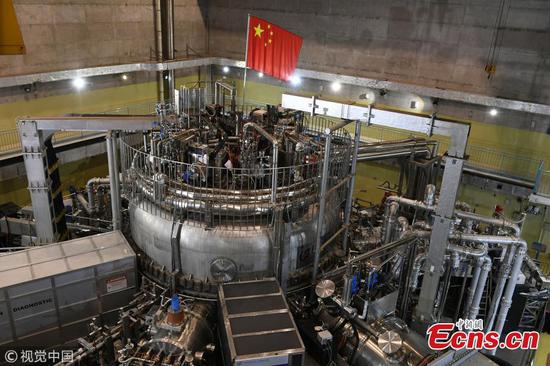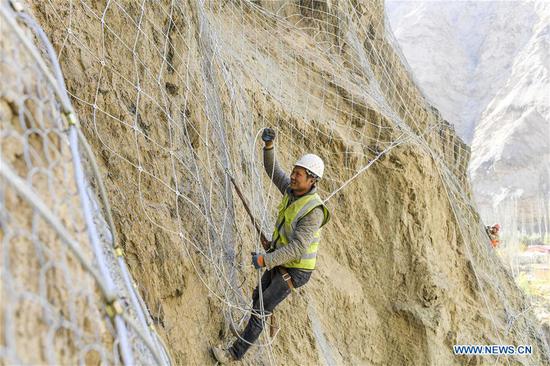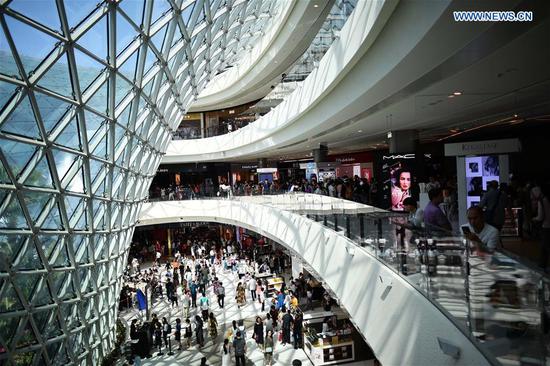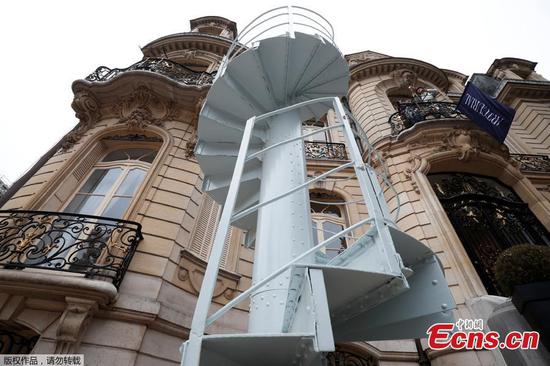
Workers sort parcels at STO Express' UK warehouse near Heathrow Airport in London. Chinese e-commerce platforms have invested millions of dollars in streamlining cross-border logistics efficiency. (Photo provided to China Daily)
As cross-border shopping booms, Chinese e-commerce giants investing heavily in logistics to get closer to consumers
China's e-commerce giant Alibaba said on Monday that Singles Day sales on its online shopping platforms this year reached a record 213.5 billion yuan ($30.7 billion), which represented an increase of about 27 percent from 2017.
But many people might not realize that Singles Day has become more than a phenomenon involving Chinese companies alone.
Thanks to the millions of dollars that Chinese e-commerce platforms have invested in streamlining cross-border logistics efficiency, Singles Day sales have also become a golden opportunity for global brands to reach Chinese consumers.
"We'd seen a surge of activity from October onwards, growing more and more as Double 11 approached," said Eric Wang, co-founder of the United Kingdom-China cross-border logistics company 51Parcel, using the Double 11 description used by Alibaba for the discounted online shopping festival.
Although sales only take place on Nov 11, global brands and logistics companies forecast which items are likely to be popular and store them in warehouses in China, so that consumers can buy global products with the potential to be delivered the next day.
To put the trend in perspective, 60,000 international brands took part in last year's festival, including familiar items from the UK such as health products from Holland& Barrett, and chocolates, biscuits, teas and coffees from Waitrose.
At the click of a button, Chinese consumers can now enjoy the best of the world's products in no more than a week.
But Alibaba and JD, another e-commerce giant, say this is still not fast enough.
This year, Alibaba made a commitment to invest more than 100 billion yuan over five years through its in-house logistics business, Cainiao Network. Ultimately, it aims to ensure products worldwide are delivered to Chinese customers within three days.
JD has made a string of investments aimed at developing its new smart logistics solutions, including self-driving vehicles and drones. Its network of more than 500 warehouses and 7,000 delivery and pickup stations means it can fulfill one-day delivery for 90 percent of orders placed on its website.
These might sound like big investments, but the reason companies are making them is obvious, as the success of e-commerce depends almost entirely on the speed and reliability of delivery.
While customers have traditionally invested time in getting to the shops, paying for goods, and potentially returning them, sellers are now competing for that work, to do it faster and at reduced cost.
"It's all about getting closer to the consumers. Convenience drives the growth of e-commerce, and logistics is the backbone that ensures this convenience," said Zhang Tianbing, head of Deloitte China's consumer practice.


















































